New Scientist covers the latest developments in science and technology that will impact your world. New Scientist employs and commissions the best writers in their fields from all over the world. Our editorial team provide cutting-edge news, award-winning features and reports, written in concise and clear language that puts discoveries and advances in the context of everyday life today and in the future.
Elsewhere on New Scientist
A note from the executive editor
It is rocket science, actually • Using a backup plan in space isn’t a sign of failure, but of success
New Scientist
River of the dead flows in Greece
Polaris Dawn crew prepare for riskiest spacewalk ever
Quantum holograms can send messages that disappear
Clothes made from potatoes could cut the fashion industry’s environmental footprint
Pregnant shark may have been eaten by another shark
‘Impossible’ galaxies probed • We may now know what makes very distant “little red dot” galaxies appear much more dense than other galaxies we have seen, finds Alex Wilkins
Marmosets are first non-human primate found that seem to call each other by name
Weird tunnelling could charge up quantum batteries
Does mpox cause lasting symptoms? • As mpox cases rise, it is important to uncover whether this virus, like the coronavirus, causes symptoms even after the infection has cleared, finds Carissa Wong
Failed ‘dark dwarf’ stars could hide dark matter inside them
Why is the US military preparing to launch new spy balloons?
Mosquito-borne illnesses are spiking around the world
We may finally know how massive gold nuggets form
Laser tweezers could reveal if Einstein’s ideas of gravity work in the quantum realm
World’s largest sailing cargo ship crosses the Atlantic
World’s fastest backflip • Springtails spin at up to 368 rotations per second to avoid danger
How ice forms in the scorching interiors of planets
Simple driving trick could slash car carbon emissions
Vaporising process could recycle plastic bags and bottles indefinitely
Analysis Space flight • Astronaut stranding reveals health of US space programme The failure of the Starliner capsule has left two astronauts stuck in space, but also proved the overall plan was good, says Leah Crane
Fast Lyme disease test could lead to speedier treatment
Fungus transforms food waste into haute cuisine for Michelin-starred restaurants
How your brain knows that the beat is about to change
Changing the script • Media portrayals of addiction, such as celebrity biopics, peddle a dangerous fiction about substance use disorder, says Anna Wolfe
This changes everything • Getting to the truth As misinformation about the upcoming US elections rockets across social media, we need transparency from the companies disseminating it, says Annalee Newitz
Small wonder
Your letters
Information overload • The author of Sapiens has turned his attention to the information networks that shape our societies, and he is out of his depth, says Michael Marshall
Close encounters • Two new books offer contrasting perspectives on how UFOs captured the world’s imagination, finds Chen Ly
New Scientist recommends
Sport’s cruellest test • Would you change your body to do what you love? A deeply researched podcast follows two runners facing a tough choice, finds Christie Taylor
Reality’s comeback • Quantum theory seems to have killed off any vestiges of what we might recognise as reality. Now there’s an audacious plan to win it back, reports Karmela Padavic-Callaghan
Cloud watching • Clouds are a huge puzzle for climate science – but new ways of studying them are helping us fathom whether...
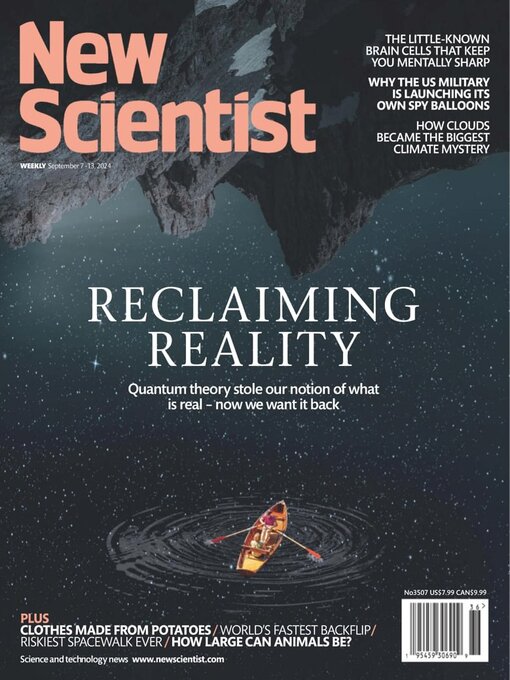
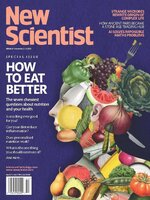 Nov 02 2024
Nov 02 2024
 Oct 26 2024
Oct 26 2024
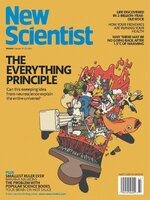 Oct 19 2024
Oct 19 2024
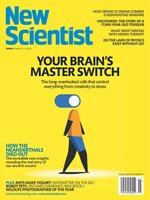 Oct 12 2024
Oct 12 2024
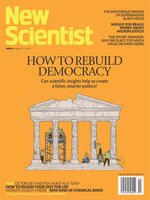 Oct 05 2024
Oct 05 2024
 Sep 28 2024
Sep 28 2024
 Sep 21 2024
Sep 21 2024
 Sep 14 2024
Sep 14 2024
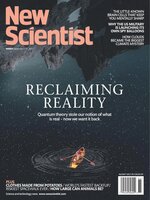 Sep 07 2024
Sep 07 2024
 Aug 31 2024
Aug 31 2024
 Aug 24 2024
Aug 24 2024
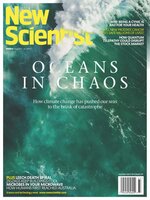 Aug 17 2024
Aug 17 2024
 Aug 10 2024
Aug 10 2024
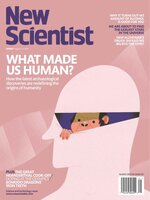 Aug 03 2024
Aug 03 2024
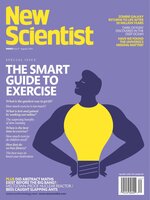 Jul 27 2024
Jul 27 2024
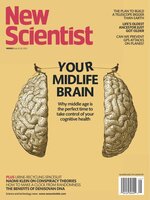 Jul 20 2024
Jul 20 2024
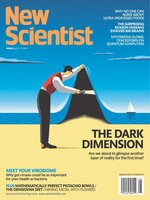 Jul 13 2024
Jul 13 2024
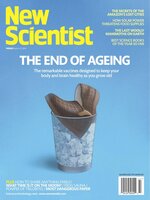 Jul 06 2024
Jul 06 2024
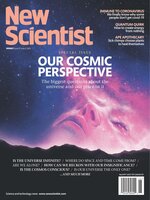 Jun 29 2024
Jun 29 2024
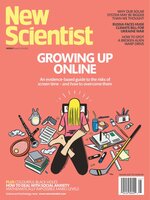 Jun 22 2024
Jun 22 2024
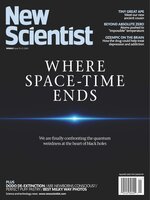 Jun 15 2024
Jun 15 2024
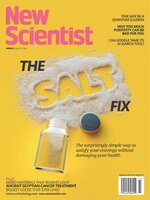 Jun 08 2024
Jun 08 2024
 Jun 01 2024
Jun 01 2024
 May 25 2024
May 25 2024
